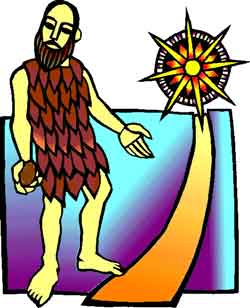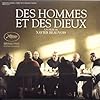THIRD
SUNDAY OF ADVENT Year A
Gospel:
Matthew 11:2-11and the Harmony
Gospel Luke 7
John
the Baptist’s Question.
The
Baptist is in jail and very live and active.
He
is sending two disciples to question Jesus if he is the One, the Messiah.
John
and Jesus are pending not long to undergo death.
If
Advent is all about Christmas it might seems about the cosy
Nativity scenes as in the Christmas Cards coming in.
Both
John and Jesus awake up the whole story of life, death and resurrection for us
all, at all time.
.
. .
Let
us breathe a moment to pray our confession to begin the Mass.
Navarre Bible Commentary
Mat 11:2-11 -
- 2. John knew that Jesus was the Messiah (cf. Mat_3:13-17 ). He sent his disciples to Jesus so that they could shed their mistaken notions about the kind of Messiah to expect, and come to recognize Jesus.
- 3-6. Jesus replies to the Baptist's disciples by pointing to the fact that they are witnessing the signs which the ancient prophecies said would mark the advent of the Messiah and his Kingdom (cf. Isa_35:5 , Isa_61:1 ; etc). He says. in effect, that he is the prophet who "was to come". The miracles reported in the Gospel (chapters 8 and 9) and the teaching given to the people (chapters 5-7) prove that Jesus of Nazareth is the expected Messiah.
- 6. Jesus here corrects the mistaken idea which many Jews had of the Messiah, casting him in the role of a powerful earthly ruler--a far cry from the humble attitude of Jesus. It is not surprising that he was a stumbling block to Jews (cf. Isa_8:14-15 ; 1Co_1:23 ).
- 11. With John the Old Testament is brought to a close and we are on the threshold of the New. The Precursor had the honor of ushering Christ in, making him known to men. God had assigned him the exalted mission of preparing his contemporaries to hear the Gospel. The Baptist's faithfulness is recognized and proclaimed by Jesus. The praise he receives is a reward for his humility: John, realizing what his role was, had said, "He must increase, but I must decrease" ( Joh_3:30 ). St John the Baptist was the greatest in the sense that he had received a mission unique and incomparable in the context of the Old Testament. However, in the Kingdom of heaven (the New Testament) inaugurated by 'Christ, the divine gift of grace makes the least of those who faithfully receive it greater than the greatest in the earlier dispensation. Once the work of our redemption is accomplished, God's grace will also be extended to the just of the Old Alliance. Thus, the greatness of John the Baptist, the Precursor and the last of the prophets, will be enhanced by the dignity of being made a son of God.
Pericope Org
Matthew 11:2-11

"John the Baptist pointing to the royal highway, the Holy Way"
Reprinted from Icon: Visual Images for Every Sunday, copywrite© 2000 Augsburg Fortress. Used by permission.
JESUS AND JOHN THE BAPTIST
This passage is paralleled only in Luke 7:18-28. With reference to Luke 7:18-28 Stoeckhardt says: "The fame of the great deeds of Christ had spread over all Judea and the surrounding regions, reaching into the mountain castle of Machaerus on the other side of the Dead Sea where John sat imprisoned."
Note that Luke 7:21 gives us additional information as to what Jesus was doing when the disciples of the Baptist arrived to ask Jesus. Evidently this account in Luke fits into the chronological order of events, not Matthew. Fahling says the order of events in Matthew 11:2-12 is transposed.
Since this account is not found in Mark, higher critics claim that Matthew and Luke found this account in the Q source. In the first place, no Q document has ever been found, and secondly, from the order of events in Luke it seems that the disciples of Jesus were with him. Matthew very likely witnessed this.
Matthew 11:2 When John heard in prison what Christ was doing, he sent his disciples
From verse 11 we know that this was the Baptist and from verse 2 we know that he was in prison. From Luke 7:18 we know that John heard it from his disciples.
"What Christ was doing" includes both miracles and preaching. That is clear from verse 5.











